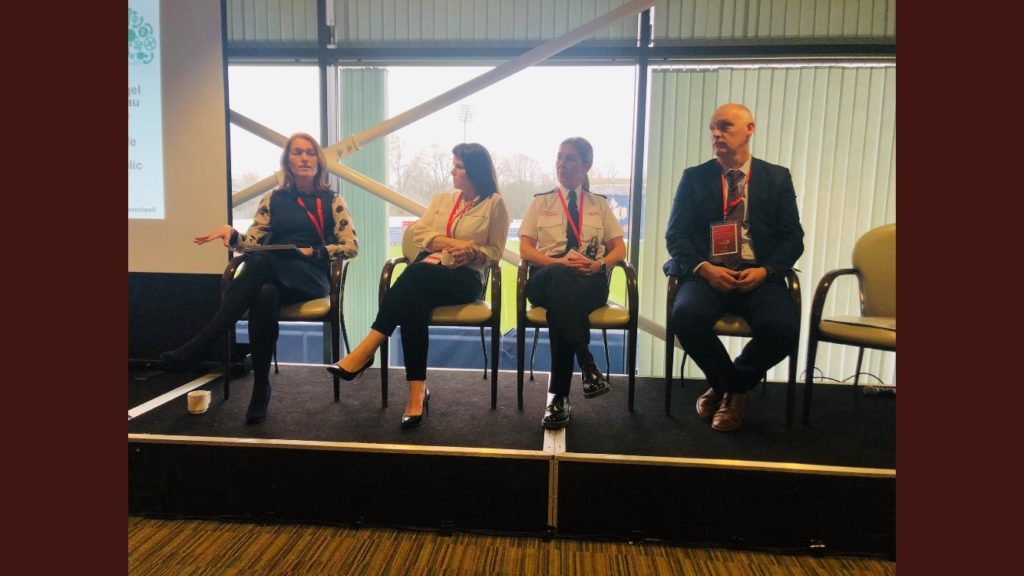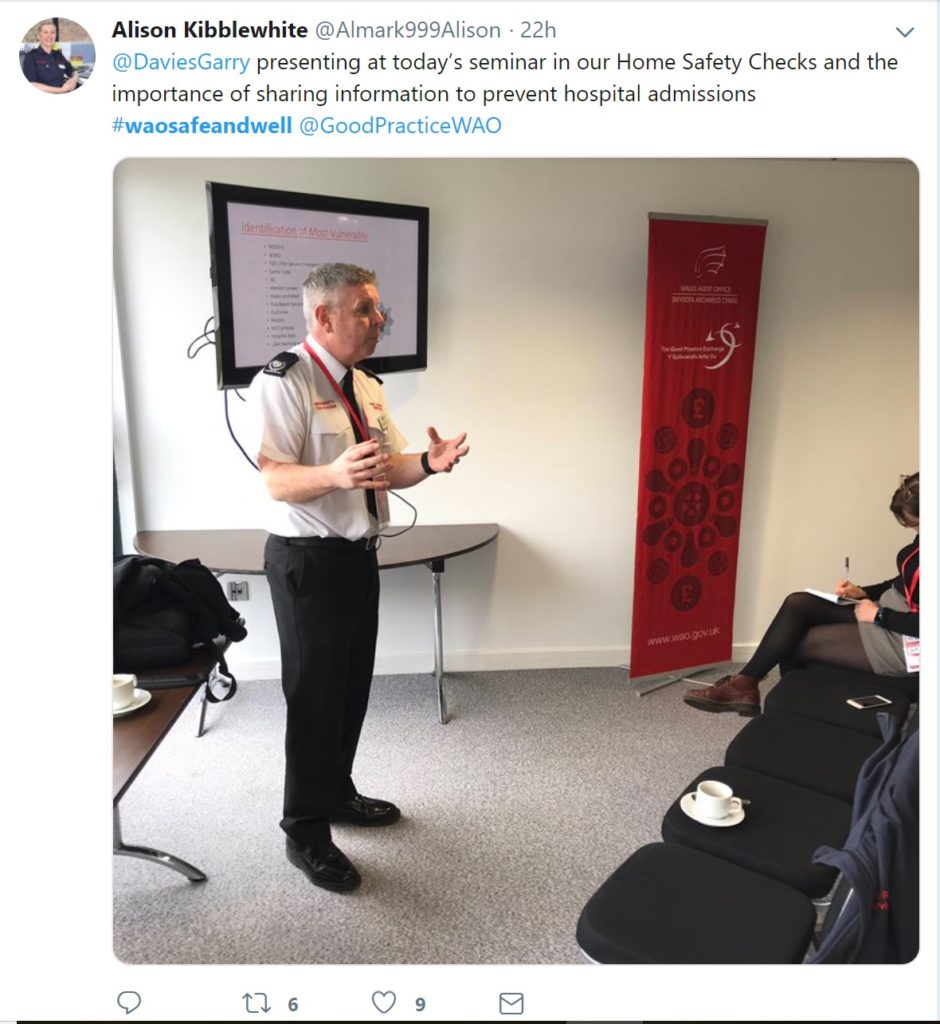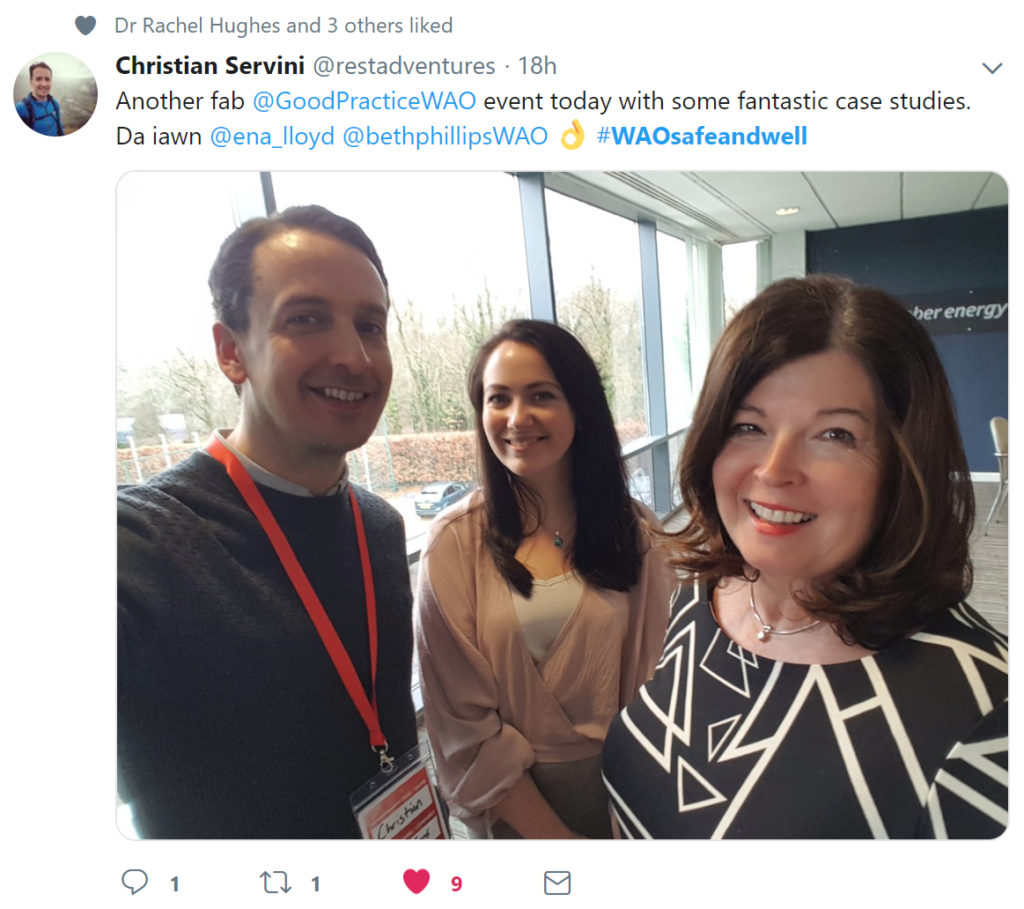“Mrs Jones doesn’t care about your service boundaries or your multi-agency plans” – how do public services support people and keep them well at home?
12/2/19
During the time it has taken me to write this follow-up blog to Tuesday’s event, the NHS will have dealt with over 3 million patients.
We know that the demand on our health service is not sustainable. And if it our systems are unsustainable in 2019, what does this mean for the health and well-being of our future generations?
By 2025, it is estimated that 1 million people in the UK could be living with dementia. By 2050 this could exceed 2 million. Within the next decade, there will be 2.8 million people over 65 needing nursing and social care, unable to cope alone.

What does this mean for hospital admissions and those on the front line?
‘Supporting people in their communities: Reducing unnecessary hospital admissions’, hosted in Cardiff on the 5th February by the Good Practice Exchange and the Wales Audit Office, provided an opportunity to highlight innovative examples where public services are helping to prevent unnecessary hospital admissions.
Legislation like the Well-being of Future Generations Act, as well as the Social Services and Well-being Act offer a framework for improving well-being; both for the individual and for our communities more widely.
Kicking off the event, Auditor General for Wales, Adrian Crompton made it clear: “treatment without prevention is simply unsustainable, and meeting today’s needs can’t be done in isolation.”
He emphasised that service re-design would be done in the context of the Well-being of Future Generations Act, stressing the importance of giving staff time to reflect and think on how services are (or aren’t) delivering.
Future Generations Commissioner, Sophie Howe, also highlighted the significance of the wider determinants of health; despite health being the area that constantly receives the most funding, only 15-20% of a person’s well-being is said to be directly affected by NHS services. Our well-being is dependent on a multitude of wider issues; from the place we call home, the air we breathe, our access to green space and public transport, and our social relationships and connections.
And that is where the statutory definition of prevention, as agreed by the Welsh Government last year, will be crucial in how we look to reform through the context of the Well-being of Future Generations Act and its five ways of working.

The Welsh Government definition of prevention is: ‘working in partnership to co-produce the best outcomes possible, utilising the strengths and assets people and places have to contribute.’
That is why these events are so valuable because of the importance they place on partnership working. The panel included:
- Anna Sussex, Public Health National Programme Manager for Frequent Attenders into Unscheduled Care
- Alison Kibblewhite, Area Manager and Head of Operations for South Wales Fire and Rescue Service
- Paula Kennedy, Chief Executive of Melin Homes and
- Detective Superintendent Jason Davies, from South Wales Police.

The variety of insight from the panel underlined just how important it is to bring these perspectives together. Alison explained how, given that the fire and rescue services get in 75,000 homes every year, this provides a great opportunity to support people’s health and well-being and make their homes a safe place.
Paula summed it up quite nicely: “If you want to go fast go alone, if you want to go further, go together.”
Something that all panel members questioned was the extent to which we truly design services around patient’s needs, or put more simply: ‘what would Mrs Jones want?’ It became quite clear that patients don’t care where their services come from.

A stand-out message for me was from Anna and her insights from working in Emergency Departments in Wales. Anna is responsible for the implementation of the successful and award-winning C&V Frequent Attender Service. She challenged the attendees to really question how much we understand the needs of a patient?
Hear Anna’s insights video here
Paula from Melin Homes reinforced the importance of housing as a key determinant of health, affirming that people want a safe, warm home, with a place for children and grand-children to play. The Well at Home Project is a partnership between Melin Homes, Cardiff Metropolitan University, Care & Repair Monmouthshire and Torfaen and Aneurin Bevan University Health Board, seeking to reduce fuel poverty.
Find out more from project co-ordinator Joanne Kiranne, here:
The event showcased several other great examples of work that gets to the heart of what patients want and need. Examples such as:
- Gofal’s Pathways project; a specialist service for people with mental health problems, who wish to access or retain employment, access education and vocational opportunities.

- South Wales Fire and Rescue Service’s approach to risk reduction and prevention:

- The Welsh Ambulance Service NHS Trust and their Falls Response Service. Find out more from Clinical Team Leader and Paramedic, James Gough.
- Ffrind I Mi, a multi-agency approach to combatting loneliness and social isolation across communities. This initiative has led to a collective social movement across the ABUHB geographical area. Find out more from Tanya Strange MBE and Claire Jordan.
- Community Care Collaborative – a Community Interest Company that works collaboratively with individuals, agencies, voluntary and community groups and patients to deliver a non-traditional model of primary care. They recently won the contract to run two GP practices in Wrexham, with 20,000 of Wrexham’s most vulnerable population.
The room was full of people asking how they could ‘adapt not adopt’ these ideas so that they could apply them to their own services. There was a real energy and sense that the room was full of what Sophie Howe calls ‘frustrated champions’ – those people who see that there are better way of doing things, but are often stifled by a system that doesn’t enable them to work better. How many of these innovative ideas are working in spite of our systems, not as a result of?
Everyone came away from the event with a new list of people to get in touch with for support, with connections made and with the permission from both the Auditor General for Wales and the Future Generations Commissioner to challenge the status quo; to deliver the kind of public services that put people’s well-being right at the heart of what they do.
If you’d be interested in attending a future event, the second event is being held in find out from compère extraordinaire Ena Lloyd herself on just why you should come along:
Watch Ena Lloyd’s video in English – https://youtu.be/fydDZXtDca8
Watch Ena Lloyd’s video in Welsh – https://youtu.be/qiFOD3l5SdA

